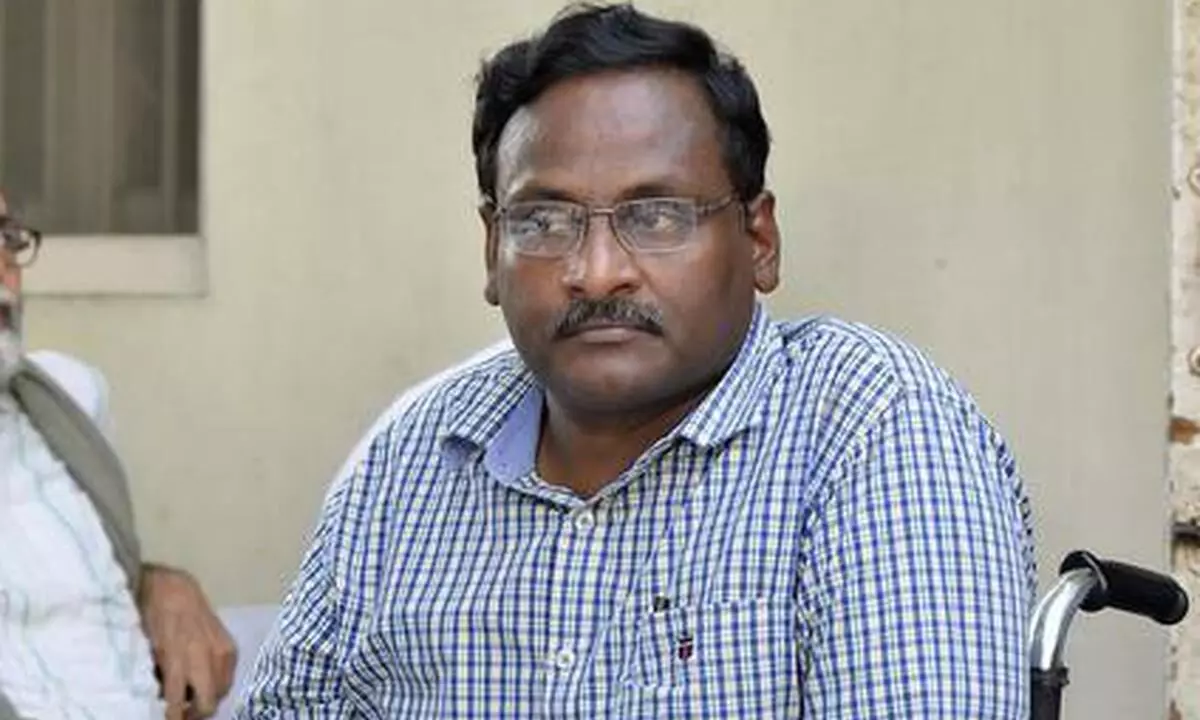
SC rejects Maha govt's appeal against GN Saibaba's acquittal
text_fieldsNew Delhi: The appeal by the Maharashtra government, seeking a stay on a Bombay High Court order that acquitted former Delhi University professor GN Saibaba, has been rejected by the Supreme Court, PTI reported.
The top court bench of justices B R Gavai and Sandeep Mehta admitted the appeal even after observing that the HC order was "prima facie well reasoned".
Justice Mehta told the appellant that the acquittal was hard-earned and the court would have dismissed the appeal in a normal case.
It was on March 5 that the Nagpur bench of the Bombay HC acquitted the 54-year-old Saibaba and others. The court then noted that the prosecution failed to prove the case against the professor beyond reasonable doubt.
"The prosecution has failed to establish any legal seizure or any incriminating material against the accused," the HC had said.
Saibaba, who is wheelchair-bound, has been lodged in Nagpur Central Jail since his arrest in the case in 2014.
The HC had also set aside Saibaba's life sentence and acquitted five other accused in the case.
It held as "null and void" the sanction procured by the prosecution to charge the accused under the Unlawful Activities (Prevention) Act (UAPA).
In March 2017, a sessions court in Maharashtra's Gadchiroli district convicted Saibaba and five others, including a journalist and a Jawaharlal Nehru University student, for alleged links with the banned CPI (Maoist) and for indulging in activities amounting to waging war against the country.
The trial court had held Saibaba and others guilty under various provisions of the UAPA and the Indian Penal Code.






















